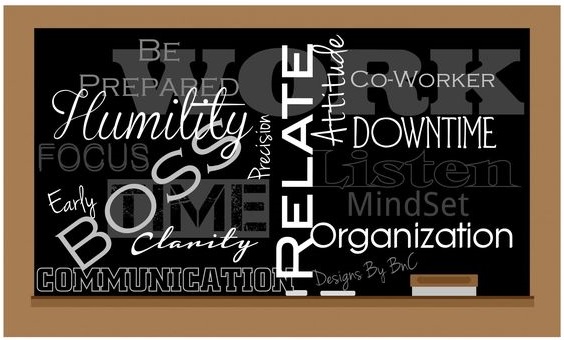Time management is a vital tool in getting the most out of your working day. It is advantageous to have a schedule to have some idea what way your day will go, how you will use your time and how you will prioritise your tasks. This blog is going to provide you with a comprehensive guide to organising yourself to maximise your man hours.
Calender
Using a calendar to plan is a fantastic way to get started. Do you have access to Outlook? Well the calendar function is phenomenal. You can enter events that are recurring for example filing every day at 5pm. Sharing your calendar is also an option so that your colleagues know when you are unavailable. It also allows you to quickly view where the gaps are in your schedule and how they can be best utilised.
Fresh Start
Start the day as you mean to go on. The first hour in work can often be lost by chatting with fellow employees, reading the gossip rags, making coffee and other non- productive activities. By starting the day on a bad footing you are in turn setting yourself up for failure. When you get to your desk, first thing to do is compile a quick list of the tasks that need to be done for the day, in order of most to least importance. Then go get your caffeine fix.
Avoid the Afternoon Slump
Make sure that you complete tasks throughout the day in order of importance. The science behind this is not just that you get the most pressing issues done first but that the most important chores get done the most effectively. After lunch it can be very difficult to get into your rhythm so jobs like filing or sorting paperwork are best left until last. They require less brain function than preparing a quote for a client for example.
Brain Storming
A brain storming session every month is a handy tool to drum up some suggestions for how to work more effectively. Often some discussion with colleagues and management will allows feedback to filter through regarding processes and how they are done. It is a good time for the less vocal staff members to give ideas on how to work more effectively. Often work is double handled and a clear example of this is getting several calls from a client because their question cannot be answered or resolved after the first conversation.
I have often worked in offices where people are constantly unavailable to take calls due to their reluctance to speak to the customer. They may be busy or just not fussed but what results is several call backs from the customer as they attempt to get hold of the person they need to speak to. This wastes the receptionist’s time and the employee just causes more work by trying to avoid the call instead of actually just taking it. A policy for answering any phone call directed to you is really valuable. Sometimes you may be genuinely busy but if you are not, make it your priority to answer as much as you can. It might be an issue that can be resolved so quickly and by avoiding the phone you are causing what might be something small to grow into something much bigger.
Do you think you are busier than you really are?
Sometimes it is easy to get caught up in the idea of being busy when we are in fact not that busy at all. An example of this happened to me recently. I work in a recruitment consultant’s office and for a few weeks the manager was on leave. When she returned she was greeted with three frazzled recruitment consultants and a board full of jobs that were seemingly impossible to fill. A line that was consistently thrown out by the consultants was “I don’t even know where to start”.
The manager quickly turned the problem around. Aware that some of the positions were sitting on the jobs board for several weeks, she identified that some were very likely not even available any more. She requested that the girls call all the clients, check if the job they wanted us to fill was still active and this task in itself cleared half the board. The clients had gotten frustrated waiting for their role to be filled and gone elsewhere for assistance. We lost a lot of business but learned a valuable lesson. The girls were so busy in their minds and rather than acting productively in filling each role one at a time, the jumped from pillar to post really getting no – where.
The moral of the story is to select a task to work on, focus on it as much as you can and with as much time as you can afford, then put it to bed and move on.
Don’t be scared to say no
Sometimes your boss might ask you to do additional duties. Do not be afraid to say no if you are feeling snowed under. There is no merit in taking on more than you can handle and it does you and your company a disservice. Remember, you do not have to be superman – everyone has their limits.
Can you think of any other planning and time management tips that are useful? Be sure to check out The Procrastinator’s Productivity Guide.


